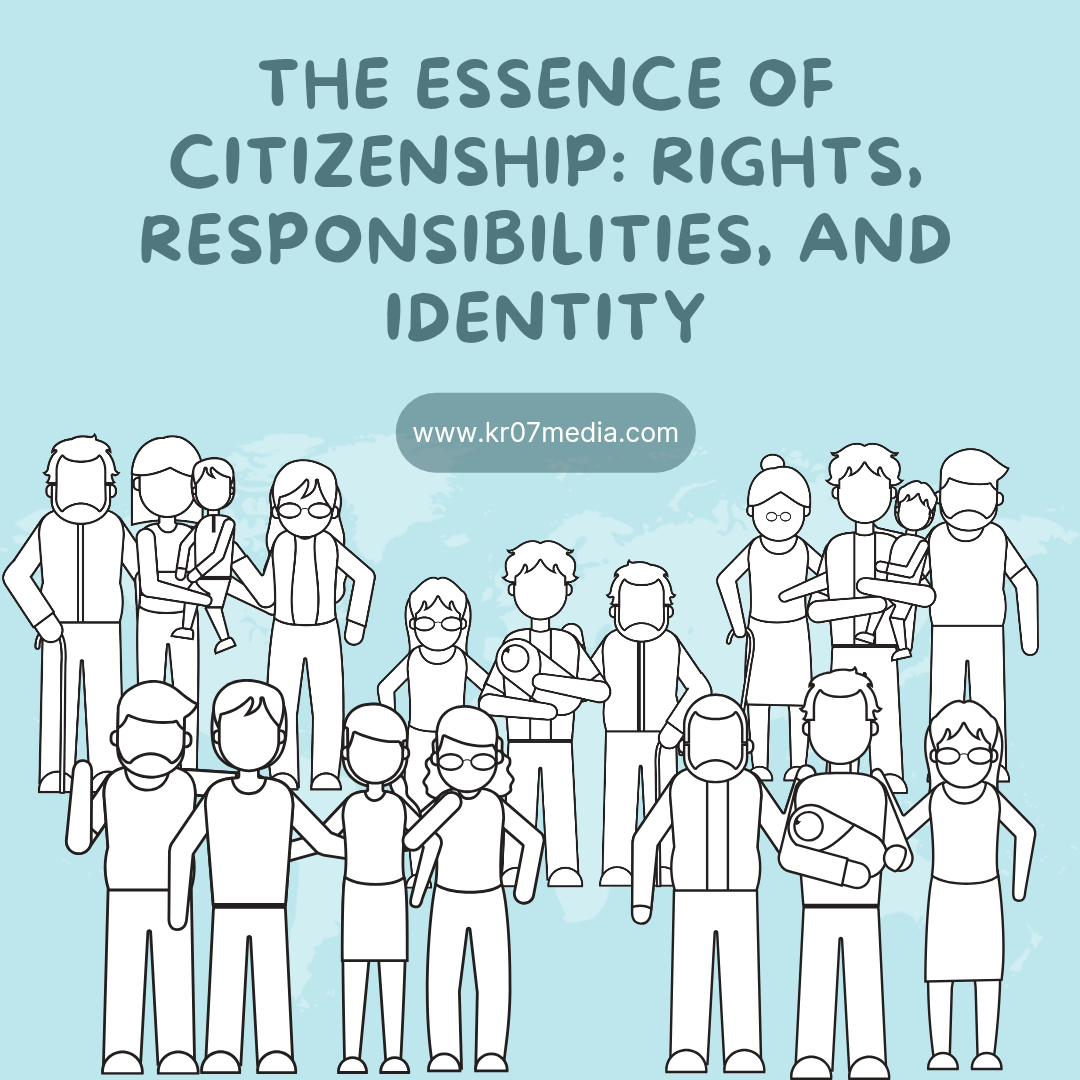Citizenship is more than just a legal status; it embodies the essence of belonging, rights, and responsibilities within a nation. It defines an individual's relationship with the state, shaping their identity, participation in society, and access to fundamental privileges. In this article, we delve into the multifaceted concept of citizenship, exploring its significance, components, and evolving nature in contemporary societies.
The Meaning of Citizenship:
At its core, citizenship confers membership in a political community, granting individuals certain rights and obligations. These rights may include the right to vote, freedom of expression, access to social services, and protection under the law. Conversely, citizens also bear responsibilities, such as obeying the law, paying taxes, and participating in civic activities. Citizenship establishes a reciprocal relationship between the individual and the state, wherein both parties uphold their end of the social contract.
Types of Citizenship:
Citizenship can manifest in various forms, including:
Birthright Citizenship:
Acquired by individuals born within the territorial boundaries of a nation, irrespective of their parents' citizenship status.
Naturalization:
Attained through a legal process by foreign nationals who meet certain criteria, such as residency duration, language proficiency, and knowledge of the country's history and laws.
Citizenship by Descent:
Granted to individuals born abroad to citizen parents, often subject to specific conditions and regulations.
Dual Citizenship:
Permits individuals to hold citizenship in multiple countries simultaneously, subject to the laws of each respective nation.
Citizenship by Investment:
Available in some countries, allowing individuals to obtain citizenship through investment in the nation's economy, typically through real estate purchases, business ventures, or financial contributions.
The Evolution of Citizenship:
Throughout history, the concept of citizenship has evolved in response to societal changes, political developments, and globalization. From ancient city-states to modern nation-states, citizenship has adapted to accommodate shifting demographics, technological advancements, and emerging forms of governance. In contemporary times, debates surrounding citizenship often revolve around issues of immigration, multiculturalism, and the rights of marginalized communities.
Rights and Responsibilities:
Citizenship bestows a spectrum of rights upon individuals, ranging from civil and political liberties to socio-economic entitlements. These rights enable citizens to participate in democratic processes, seek redress for grievances, and enjoy protections against discrimination and oppression. However, these rights are accompanied by corresponding responsibilities, emphasizing the importance of active engagement, civic duty, and contribution to the common good. Upholding these responsibilities fosters social cohesion, democratic governance, and the preservation of fundamental values.
Challenges and Controversies:
Despite its significance, citizenship remains a contested and evolving concept, fraught with challenges and controversies. Issues such as statelessness, refugee rights, and the exclusion of marginalized groups highlight the complexities inherent in citizenship regimes. Moreover, debates over immigration policies, border control, and nationalism underscore the tension between inclusive citizenship and exclusive citizenship.
Conclusion:
In conclusion, citizenship encapsulates the essence of belonging, rights, and responsibilities within a nation-state. It serves as a cornerstone of democracy, social cohesion, and individual identity, shaping the collective ethos of societies worldwide. As we navigate the complexities of the modern world, it is imperative to uphold the principles of citizenship, ensuring inclusivity, equality, and justice for all members of the political community.



